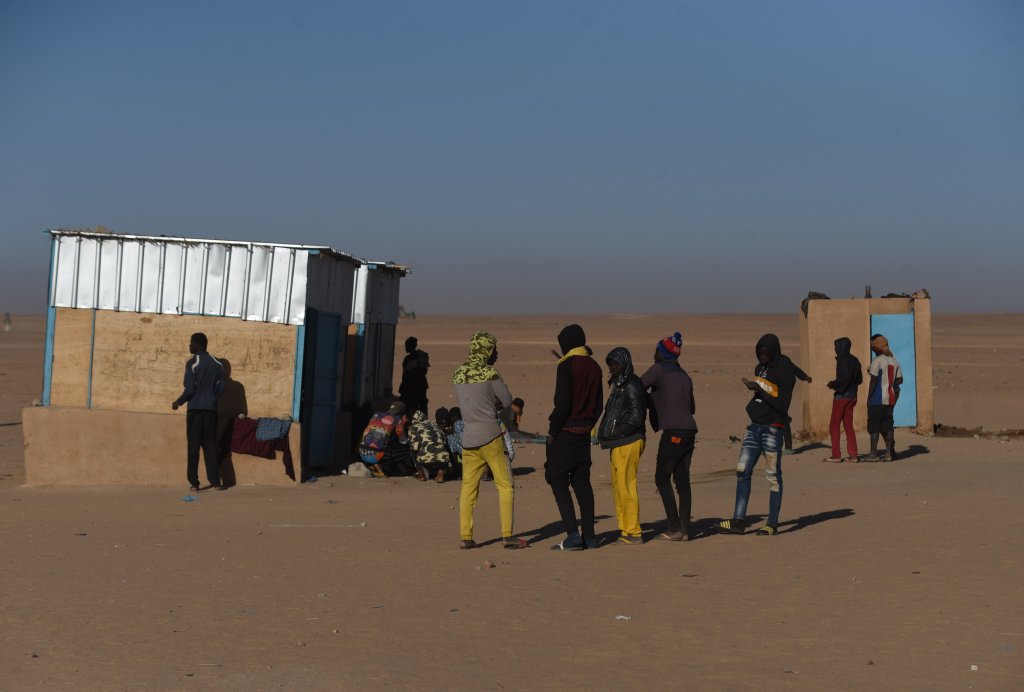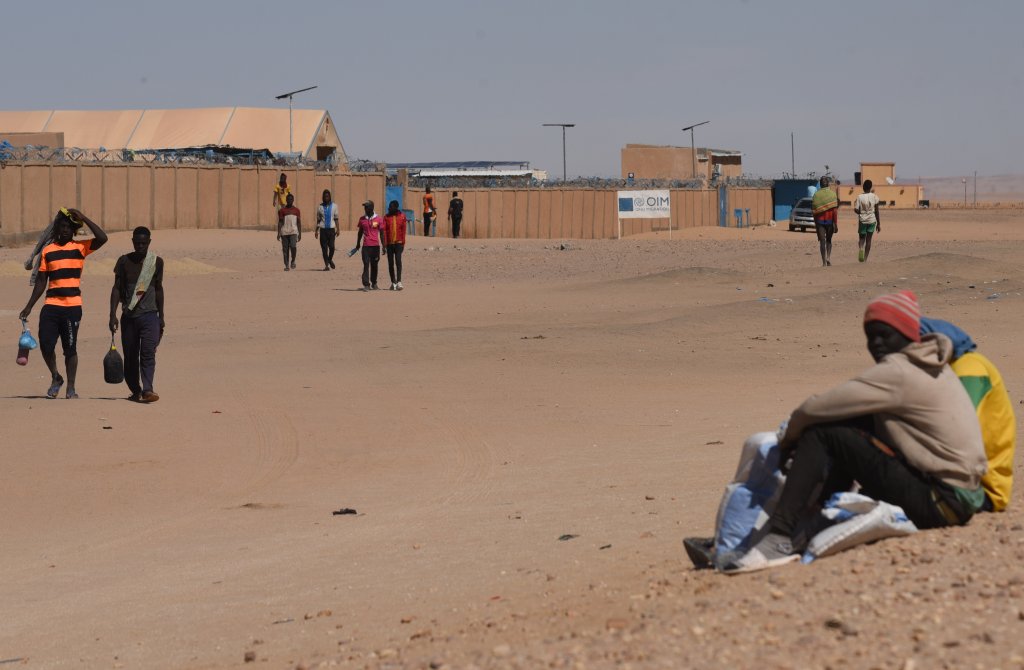The Alarme Phone Sahara NGO published a press release on January 13, pointing to the number of migrant deportations conducted by Algeria to Niger during the year 2024. More than 30,000 people were turned back by Algerian authorities and sent to the desert. That is a record number compared to previous years.
Never have so many migrants been deported from Algeria to Niger as in 2024, stated the NGO Alarme Phone Sahara (APS) in a press release on Monday, January 13. "At least 31,404 people (...) were deported from Algeria to the Niger border during the year 2024", the NGO explained. APS denounces the "violent" and even “deadly” treatment of these migrants.
In a previous report, APS indicated that Algeria had turned back some 20,000 migrants, between January and August 2024 alone. Since 2014, irregular migrants from Niger but also from other African countries, including women and minors, have been frequently turned back from Algeria, a transit point to Europe. But, in 2024, the number of people expelled by the authorities in Algiers "exceeded all documented figures from previous years", including that of 2023 with 26,031 deportations, Alarme Phone Sahara claimed.
These deportations take place after mass arrests of migrants in the country. However, these mass arrests are becoming more and more frequent, explained the NGO. "Algerian security forces regularly carry out raids and mass arrests at the places where migrants live and work," APS wrote in its press release.

"Since 2023, we have observed an increase in chain deportations, during which people are expelled [from] Tunisia, often after pushbacks at sea, towards the Algerian border, then by Algerian security forces towards the Niger border," the organization added.
Read AlsoDavid Yambio: From child soldier to activist (part 1)
'After five or six hours, we were dropped off in the desert'
Since 2014, InfoMigrants has collected numerous testimonies from people who were deported from Algeria after being arrested in their daily lives or following an aborted attempt to cross the Mediterranean. They are then dropped off in the desert in southern Algeria and ordered to cross the border on foot to reach the Nigerien town of Assamaka, where an International Organization for Migration (IOM) transit center is located.
Mamadou, a 22-year-old Senegalese national, told InfoMigrants that he spent more than 20 days in an Algerian prison after his arrest in the country. The young man was then handcuffed and forced onto a bus.
"After five or six hours […], we were dropped off in the desert, there was nothing around. The Algerian police shouted at us: 'Here is Assamaka!' while pointing to the horizon. 'The IOM, it's straight ahead'. We set off, I don't remember for how long. All I remember is that I was exhausted, completely exhausted. I still managed to walk the ten kilometers that separated us from Assamaka," he said.
In April, the Nigerien authorities summoned the Algerian ambassador to "protest" against the "violent nature" of these repatriation and pushback operations. In turn, Algiers summoned the Nigerien ambassador while judging the Nigerien authorities' allegations to be "baseless".

Read AlsoTunisia: Migrants remain missing after alleged abandonment in desert
Deportations from Libya
But deportations from Algeria are not the only ones worrying APS. In recent months, expulsions from Libya to eastern Niger - and in particular to the city of Dirkou - have increased, they say.
On January 1, 770 Nigerien migrants expelled from Libya "returned to the national territory", according to the Nigerien army. But this expulsion operation initiated by Tripoli was "supervised by a (military) escort to the town of Dirkou", on the Niger side, the army said, indicating that their reception was "coordinated" by the security forces and the IOM.
The increase in these returns and deportations and the influx of migrants to Dirkou has meant that the tiny IOM reception center is becoming increasingly crammed with people. The center only has 30 places for people to sleep. As a result, about 100 people found themselves having to sleep outside the center from mid-November onwards. "Some have even been there for three months," Azizou Chehou, coordinator of the APS platform in Niger, said.
The situation has since worsened. On the night of January 3 to January 4, 613 Nigerien migrants arrived in the city of Dirkou after being expelled from Libya. For the authorities of Dirkou and the IOM, the only solution to restore capacity in the center is for these people to be transferred to Agadez. But the reception centers in the Nigerien capital also lack accommodation spots.
